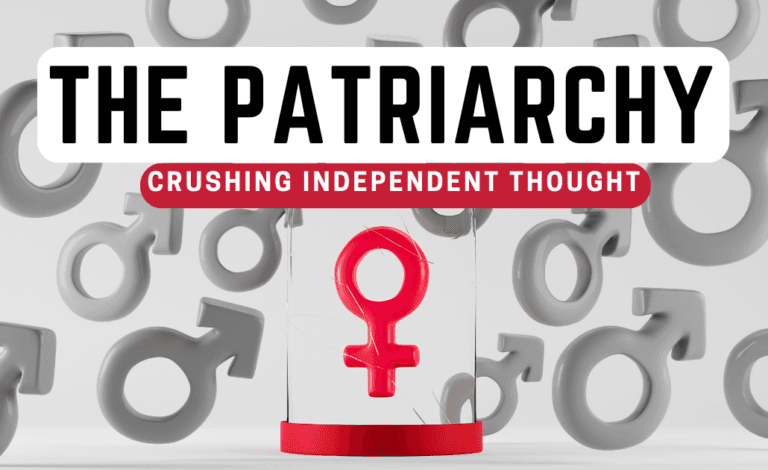The following is taken from our podcast episode published as Episode 90. Transcript for Episode 90.
Podcast: Narcissistic Abuse Recovery Podcast
Host: Lynn Nichols
Lynn is a heartfelt advocate for personal growth and empowerment, and writes with raw insight on navigating narcissistic abuse, toxic relationships, and sometimes the societal challenges tied to the patriarchy. With a deeply experiential approach, her stories shed light on the emotional complexities of breaking free from toxic patterns and reclaiming one’s voice. L.N. offers fresh perspectives on gender dynamics, self-worth, and healing, encouraging readers to rebuild from within and revolutionize their relationships.
Lynn is also a trauma-informed narcissistic abuse recovery coach and podcast host. She creates videos on her YouTube channel to bring the message of healing and recovery. Learn more on her website here.
Read the Article on Medium
The Real Reason Some Men Resist Independent Women: Uncovering the Roots of Resistance
Why does a woman’s financial freedom still trigger discomfort in some men? In this episode, Lynn digs beneath surface-level stereotypes to expose the cultural machinery that equates “being a good man” with being needed. You’ll hear how centuries-old laws—like banks refusing women their own credit until 1974—still echo in today’s wage gaps, caregiving penalties, and financial abuse. We trace five main fault lines of resistance: loss of control, identity crises, caregiving myths, gender-role whiplash, and the sheer uncertainty of facing a blank page when the old script no longer fits.
Along the way you’ll learn:
- How “provider” conditioning turns independence into a perceived threat
- Why peer-pressure slurs like “simp” and “whipped” police male behavior even in adulthood
- What really happens when partners rewrite household roles and share emotional labor
- The silent link between financial autonomy and women’s safety after break-ups, illness, or divorce
- Practical steps—on both sides—for turning power struggles into genuine partnership
If you’ve ever been called “too independent” or wondered why equality can feel like loss to someone else, this conversation will connect the dots. We also reference Episode 89, “The Silent Brotherhood,” for deeper insight into male loyalty codes, and highlight Lynn’s book Master Manipulators—now on Audible—for a full breakdown of covert narcissistic tactics.🎧 To hear this full episode, go to waketheelephant.gumroad.com/l/hiddenloyalty
Listen in, take a breath, and decide whether you’re still reading from yesterday’s lines or ready to write something new—together.
Learn More: Link: https://www.bath.ac.uk/announcements/husbands-stress-increases-if-wives-earn-more-than-40-per-cent-of-household-income-new-research/
Master Manipulators on Audible:
Welcome back to the Narcissistic Abuse Recovery Podcast. I’m Lynn, your host.
Over the years, more and more women have earned their own money, made their own choices, and built lives that don’t revolve around whether a man approves. They’re buying homes, launching businesses, and—yes—going solo if they need to. But instead of celebration, there’s often a chill. Sometimes silence. Sometimes mockery. Sometimes outright hostility.
So today, we’re not holding back. We’re asking: Why does women’s independence unsettle some men? What does it threaten? What are they really afraid of losing?
And before we dive in, here’s what’s new:
• Episode 89 – The Silent Brotherhood: What Women Don’t Know About Male Loyalty and Why It Matters. It’s a tight 20‑minute deep dive into the hidden code of male respect and why women are often second in line. You can own the full 20-minute version at waketheelephant.gumroad.com—the link’s in the description.
• Second, MASTER MANIPULATORS: Discover the Covert Tactics Narcissists Devise to Manipulate, Deceive, and Control—my second book—is now available on Audible. If you’ve ever felt like you were walking on eggshells, being emotionally hijacked, or manipulated in ways you couldn’t explain, this book breaks it all down. You’ll learn the 33 covert narcissistic tactics used to dominate, deceive, and dismantle your sense of self, plus insights into the cycle of abuse, grief after narcissistic relationships, and why No Contact is only the beginning of healing. It’s empowerment. It’s education. It’s important to learn the tactics they use to tear you down so you can make the best decision for yourself.
• We’re rolling out more paid downloads and special‑edition episodes soon. These take time to create, and your support helps cover production costs and keeps our research deep. Watch the feed for those special releases.
This is Episode 90. We’re diving deep into the systems that shape us. We’ve been deconstructing the patriarchy since Episode 69—go back and download those earlier episodes to follow the complete series. Some of what we’ll discuss today might sting—but that usually means we’re close to the truth.
Visit our Podcast Page
Why Women Are Seeking Independence
Independence isn’t rebellion—it’s recovery.
For generations, women were denied access to bank accounts, credit, property ownership, and basic legal rights. Many watched their mothers stay in unsafe marriages simply because they couldn’t afford to leave. Even today, wage gaps, career penalties for caregiving, and cultural rollbacks on bodily autonomy push women to create their own safety nets.
They’ve seen what happens when they don’t. Husbands who walk away during illness. Longtime partners who “trade in” their spouse after the kids are grown. Divorce filed after decades of unpaid labor—child-rearing, homemaking, emotional caregiving—all of it unrewarded and easily discarded.
Some women have experienced overt cruelty. Others, quiet abandonment masked as reinvention. The message is the same: do not rely on what hasn’t reliably supported you.
So women are choosing differently. Not because they reject love or partnership—but because they’ve learned the cost of being financially and emotionally unprotected. Independence is their insurance. Their stability. Their boundary against a world that has too often left them alone, even while partnered.
This isn’t overcorrection. It’s a response to systems that failed them.
Related: The Silent Brotherhood. Listen to the Episode on Gumroad
Loss of Control
Why are men fearing the rise of independent women?
Let’s start with the one nobody wants to admit: control.
For most of U.S. history, a woman’s survival depended on marrying a man who could navigate basic legal and financial systems she was barred from. Banks routinely required a male co‑signer for a woman to open an account, and women were often refused credit outright until the Equal Credit Opportunity Act of 1974. Each hard‑won right—from the Equal Pay Act of 1963 through the Violence Against Women Act of 1994—eroded that enforced dependency. With every milestone, some men felt their traditional role slipping away.
They want the control. They like being in charge. They like having the image that she needs him. Needs him to put a roof over her head, needs him to protect her. Need, need. Need.
When a woman buys her own house or pays her own way, it’s not just a line item—it’s a loss of role for a man. His identity is tied to doing this for a woman. And then when he does this he may feel she needs him, and as long as he fulfils this role, he is adhering to his man role in society. When a woman can do this on her own, he is not thrilled to say the least. Some men aren’t generally happy when women have evolved to this place. They hear things such as, “I don’t need you” when really the desire she may have has shifted. We will get into this more.
When a man hears, “I don’t need you,” even if it’s not explicitly stated, she isn’t cancelling connection—she’s cancelling dependency. And for some men, that’s not a shift; it’s a collapse of the empire and the role they believe they are supposed to have.
A long-term study from the University of Bath showed that men’s psychological stress spiked when their partner earned more than 40% of the household income. That forty-percent mark was the tipping point. Control lost. Cortisol up.
If a man’s worth is tied to being a provider, her independence isn’t merely threatening—it may be destabilizing for the relationship. His internal framework—value, role, purpose—can begin to unravel.
Does he just want to control her life? Does he just want her to suit his purposes? Why is the desire for control so strong?
Ask yourself: Did you define yourself by solving her problems? What happens when she’s no longer looking to you for rescue?
If control once equaled security, what happens when security gets redefined—and men must ask who they are without it?
Threat to Identity
Let’s go deeper—beyond control, into identity.
Many men are taught that their value comes from what they do, not who they are. Provide. Protect. Perform. But when a woman already has her finances, her peace, her direction—what’s left for him to offer?
If his only value is being needed, what happens when his partner simply wants his presence?
Wanting someone is a compliment, not a contract. Yet for some men, it may feel like being demoted from main character to extra. When dependency ends, insecurity can flare.
This isn’t just about bruised ego—it’s about identity. When a man hasn’t developed a stable sense of self outside of his usefulness, an independent partner may feel threatening—not because of who she is, but because of what she reflects back to him: the gaps in his own development.
That mirror shows him what he may not have built yet—emotional intelligence, self-worth, internal motivation. If those aren’t cultivated, resentment may step in: withdrawal, control, criticism—anything to regain footing.
He may not resent her—he may resent what her independence forces him to confront.
What happens to your sense of purpose when you’re no longer cast as the fixer or the problem‑solver?
And when you know you can stand on your own, how do you think that might change the way you connect and interact with others?
Real love begins where ego ends. And sometimes, growth means stepping out of your role and into your self.
Challenging the Caregiving Script
But independence doesn’t just affect men’s sense of self—it reshapes the roles inside the relationship.
Josh grew up watching his mother manage the home. Praised for mowing the lawn, carrying groceries. Now married to Tessa—a six-figure creative director—he’s asked to coordinate daycare and cook dinner. Praise turns into panic.
To him, folding laundry isn’t neutral. It may signal failure. Patriarchy often codes caregiving as feminine, so basic domestic tasks can trigger fears of emasculation. Sharing the load may feel like giving something up—when it’s actually gaining partnership.
This internal tension can paralyze a relationship. The woman asks for help; the man hears, “You’re not enough.” He shuts down or deflects, and the emotional connection frays.
But here’s the truth: caregiving isn’t feminine. It’s human. And partnership requires shared responsibility, not rigid roles.
Ask yourself: Is your discomfort with domestic work really about the task—or about what you’ve been taught it says about you?
When we drop the script, we open the door to equality, and from there a balanced, healthy approach to relationships can start to form.
Rejection of Gendered Norms
And when those roles get rewritten, the whole rulebook starts to look different.
We all grew up on some version of boys-do-X, girls-do-Y. But today’s women are doing it all—and doing it well. Some men freeze.
If she’s not following the rules, what rules is he supposed to follow?
When gender roles are challenged, some men may not feel empowered—they may feel erased. But these roles were never identity—they were survival scripts. Outdated ones.
If a man never learned to revise his script, he may cling harder to the old one. Passive aggression, stonewalling, sarcasm—it’s not always about her success; it may be about his confusion.
This is the unspoken truth: evolving roles don’t erase anyone—they invite everyone. But only if you’re willing to evolve too. Ask yourself: Are you clinging to a role, or building a relationship? Are you trying to do everything right by societal standards, yet neglecting yourself in the meantime?
Fear of Accountability
Next comes accountability—the moment independence meets expectation.
An independent partner brings confidence—and standards. She’ll question emotional availability. She may ask, “Why should I handle the emotional labor and the dishes?”
Some men may interpret these questions as attacks. But they’re invitations to show up.
Fear of accountability often hides fear of inadequacy. Because once you see your habits clearly—deflection, avoidance, entitlement—you can’t unsee them.
True masculinity isn’t about perfection; it’s about presence. And presence requires accountability. Ask yourself: When confronted with your shortcomings, do you grow—or guard your ego?
We’ve talked about personal responsibility; now let’s zoom out to the culture that shapes it. Peer pressure doesn’t end after high school. A man who supports an independent woman can still be branded a “simp” or “whipped.” Those jabs aren’t harmless—they’re quick warnings to stay inside the old gender lanes. When someone’s sense of strength depends on another person staying silent, that isn’t strength; it’s dominance. Cultural conformity may feel safe and protected as long as someone stays within the confines, but what is lost? True strength adapts, respects, and grows.
The Challenge and Need for Growth
Another reason some men push back against women’s independence is uncertainty—facing a blank page where the old playbook used to be.
We’ve talked about cultural expectations, identity, and control. But underneath all of that is a more subtle discomfort: not knowing who they are without the role they were taught to play. When a woman no longer needs protection, provision, or permission, the script many men were handed stops working. And what replaces it is silence. Space. A blank page.
That can feel like free fall. There are no cues to follow, no instant validation, no clear path to prove worth. And for men whose sense of identity has been tied to being needed, her independence can feel like erasure. It raises questions that don’t have easy answers. Who is he if he’s not being depended on? What remains when usefulness is no longer the measure of value?
But that blank page isn’t emptiness. It’s possibility. It’s the chance to shift from control to collaboration, from roles to real connection. It’s space to grow—not by being needed, but by being chosen. The old script may have promised clarity, but it came with limits. The blank page invites authenticity, even if the first few drafts are messy.
Holding on to the old lines might feel safer, but safety without growth quickly becomes a cage. Choosing the blank page doesn’t erase power—it reshapes it. Into mutual respect. Into partnership. Into something that evolves instead of repeats.
The Regression of Women’s Rights in the U.S.
And as we talk about the evolution required of men, we also have to face a harder truth: women’s rights in the U.S. are not guaranteed—they’re actively being rolled back.
- Legal Rollbacks
In 2022, the Supreme Court overturned Roe v. Wade, removing federal protection for abortion rights. Many states followed with severe restrictions, some even criminalizing travel for reproductive care. Women’s autonomy over their own bodies is no longer federally protected. - Cultural Backlash
As more women rise in influence, we’ve seen a resurgence in traditionalist rhetoric—online and offline. From influencers promoting 1950s gender roles to mainstream attacks on feminism, cultural forces are working to push women back into silence and subservience. - Economic Impact
Wage gaps persist. Unpaid care work remains largely invisible. And many DEI programs supporting women in leadership are under attack. When women are stripped of rights, their economic futures are destabilized—not by accident, but by design.
If today’s episode made you think, share it with someone who needs to hear it.
Want more? Master Manipulators on Audible breaks down 33 covert narcissistic tactics and how to spot them in real life. Thanks for listening—I’m Lynn, and this is the Narcissistic Abuse Recovery Podcast. Visit our website at moving forward after abuse dot com and Ill see you in the next episode.
Read More
Stress Increases when Wives Earn More than 40% of Household Income
Men Resist Independent Women Men Resist Independent Women Men Resist Independent Women Men Resist Independent Women Men Resist Independent Women Men Resist Independent Women Men Resist Independent Women Men Resist Independent Women Men Resist Independent Women Men Resist Independent Women Men Resist Independent Women Men Resist Independent Women Men Resist Independent Women Men Resist Independent Women






